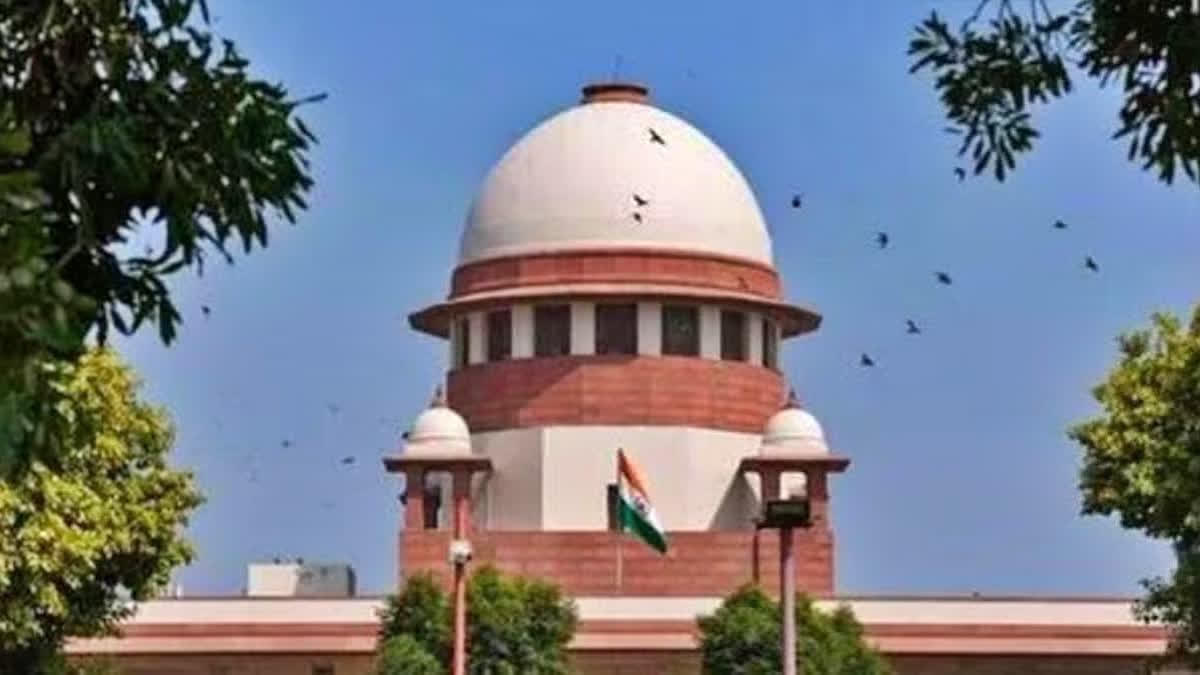New Delhi: The Supreme Court has said that an appellate court can't alter a charge in a criminal case without issuing notice to the accused. A bench comprising justices Abhay S Oka and Pankaj Mithal said that given the wide powers conferred by Section 386 of CrPC, even an appellate court can exercise the power under Section 216 of altering or adding the charge.
“However, if the Appellate Court intends to do so, elementary principles of natural justice require the appellate court to put the accused to the notice of the charge proposed to be altered or added when prejudice is likely to be caused to the accused by alteration or addition of charges”, said the apex court.
The bench said unless the accused was put to notice that the appellate court intended to alter or add a charge in a particular manner, his advocate could not effectively argue the case. “Only if the accused is put to notice by the appellate court that the charge is intended to be altered in a particular manner, his advocate can effectively argue that even the altered charge was also not proved”, said the bench.
The apex court set aside the conviction of Chandra Pratap Singh about the triple murders of 1987 after finding that the Madhya Pradesh High Court altered the charge against him without issuing a notice and decided the appeal in the absence of his counsel.
The bench said for example, in the present case, the appellate court needed to put the appellant to notice that it intended to convict him with the aid of Section 34 of IPC, for which a charge was not framed. “We may add here that the court can give the notice of the proposed alteration or addition of the charge even by orally informing the accused or his advocate when the appeal is being heard. In a given case, the court can grant a short time to the advocates for both sides to prepare themselves for addressing the Court on the altered or added charge”, said the bench.
Also read: SC to hear the plea of Sterlite copper unit of Tamil Nadu on November 29
The petitioner’s advocate was absent when the High Court took up the appeal. The bench observed that the High Court altered the charge under Section 302 read with Section 34 (common intention) of IPC without recording any reason for it, causing grave prejudice to the appellant.
“Grave prejudice has been caused to the appellant by altering the charge without giving any notice to the appellant or his advocate about the charge. The reason is that there was no opportunity available to the accused to argue that there was no evidence on record to prove the existence of common intention, which is the necessary ingredient of Section 34 of IPC. There is one more crucial aspect of the case”, said the bench.
The apex court said in the ordinary course, it would have remanded the matter to the High Court for a fresh hearing, however, the court cannot ignore that the incident is of 1987, and the present appeal is of 2011. “Therefore, it will be unjust to pass an order of remand. Hence, we have examined the evidence on record”, said the bench.
The bench said there is no overt act attributed to the appellant by any prosecution witness in the assault on deceased Uma Prasad. “In this case, there is no overlap between a common object and a common intention. Therefore, the conviction of the appellant under Section 302, read with Section 34 will have to be set aside”, said the bench, in a judgment delivered on October 9.
The bench noted that the petitioner was sentenced to five years in jail under Section 201 (destruction of evidence) for dragging the body of the deceased. However, he spent nine years in jail before being granted bail in 2012. In the present case, Uma Prasad, and his sons Vinod Kumar and Munau alias Anant Kishore Khare, were murdered in June 1987. According to the prosecution, 17 accused had attacked Uma Prasad, who died on the spot. Later, the accused went to the bus stand and shot dead his two sons.
Ten accused were acquitted by the trial court and seven were guilty. The High Court confirmed the conviction of four and acquitted three others, and out of these four accused, two did not file an appeal. In 2012, one convict filed an appeal which was dismissed by the apex court.



